Dungeons & Dragons has a lot of options for people who want to sling spells, but some are difficult to differentiate purely by name. A bard and a cleric have obvious differences from a wizard because both words have non-magical meanings that help us to understand them.
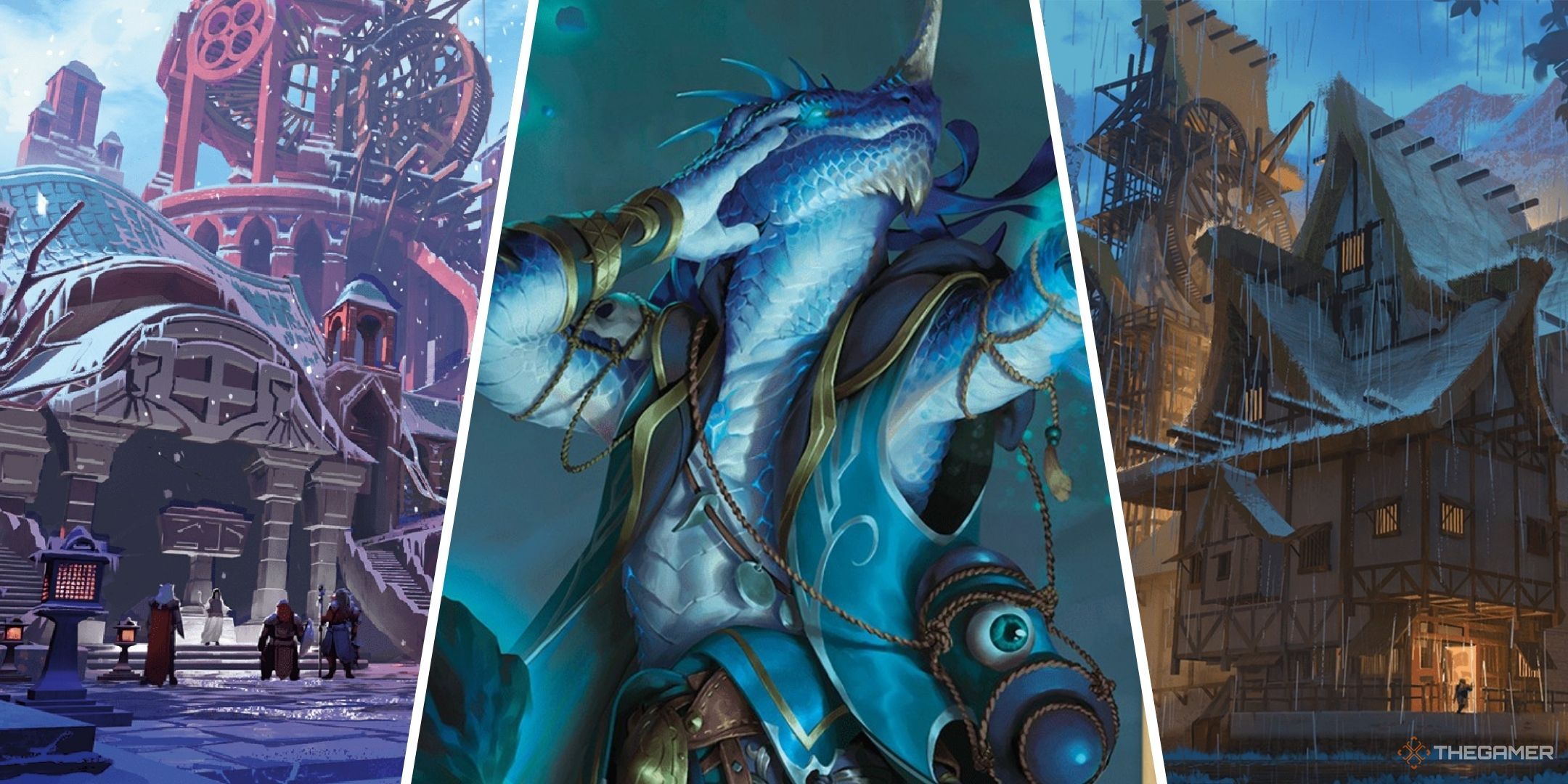
Related
Dungeons & Dragons: Best Sorcerer Bastion Build
Bastion’s are great places for players to build up during adventures and spend downtime working on. Sorcerers can benefit from these options in D&D.
The difference between a wizard, sorcerer, and warlock is harder to work out purely from the name. A warlock sounds vaguely evil, but there are enough stories of dark wizards and unrepentant sorcerers that even this clue is muddied. Each of the three in D&D has a distinct identity and a history behind their name.
Updated November 20, 2024, by Sean Murray: Wizards, warlocks, and sorcerers all wield magic, but they all do it slightly differently. We’ve updated this guide to make it a little easier to tell the differences and also note some of the subclasses added in the 2024 Dungeons & Dragons rules update.
Sources Of Power For A Wizard, Warlock And Sorcerer
The main thematic difference between the three arcane spellcasters is how they came to be magical.
|
Type |
How they became magical |
|---|---|
|
Wizard |
A wizard achieves magical power through careful study. They might attend a formal school or learn independently but arrive at a series of formulae that produce magical effects when used. In the forgotten realms, this is done by directly accessing the Weave, the magical underlayer of reality, and distorting it to create a specific effect. Since the wizard chooses how to direct their studies, they can choose to specialize in a specific school of magic. |
|
Sorcerers |
Sorcerers are born with inherent magical power. A sorcerer can often trace their ancestry back to a dragon, fey or other magical creature. This gives them a direct and intuitive channel to access the weave, but they’ll have a stronger affinity for the magic derived from their ancestors. |
|
Warlocks |
Warlocks barter for their power, rather than fully owning it. Like sorcerers, they gain their power from an external source, but instead of inheriting it, they strike a deal (sometimes unwillingly) with greater powers known as ‘patrons’ who grant them magical abilities. Warlocks can be thought of as somewhere in between the wizard and sorcerer. Some are wizards who cut corners on having to do all the book learning, and others are more sorcerous but didn’t luck into a magical birthright. |
There are a few exceptions to these broad themes. Some sorcerers come into power later in life as a result of something other than ancestry. This could be the result of wild magic, unpredictable and potentially dangerous arcane happenstance.
A warlock meanwhile, might gain power not by barter but by theft. A warlock of the Great Old Ones might only be confident in their power because their ‘patron’ is unaware of their existence.
Playstyle Of A Wizard, Warlock, And Sorcerer
The biggest difference between them is in how their power is conveyed mechanically. Each can wield their magic in different ways that give relative advantages over each other. Spells in D&D are organized into spell slots that represent the energy needed to wield magic.
Wizards and sorcerers have the same number of spell slots, with warlocks following a unique ruleset.
|
Spellcaster |
Advantage |
Example In Play |
Weakness |
|---|---|---|---|
|
Wizard |
Wizards are the only ‘prepared casters‘ of the trio. Since their magic is derived from their studies, they can spend time studying to learn new spells without leveling up and can change which spells they have ready on hand. |
A wizard expecting to fight trolls might purchase scrolls containing fire spells and transcribe them into their spellbook to learn them. |
When the wizard is not able to plan for the situation, they are at a disadvantage. |
|
Sorcerer |
Sorcerers invert the wizard formula as ‘spontaneous casters‘. All the magic they learn they have access to at a moment’s notice but they cannot learn new spells easily. They compensate for this limited toolkit with metamagic. Metamagics are sorcerer techniques that modify an existing spell for a stronger or different effect. |
A sorcerer might use the twin spell metamagic to split a ray of frost in two, striking two targets when the spell normally hits once. |
The sorcerer won’t be able to adjust their available spells to target an enemy’s weaknesses. |
|
Warlock |
Warlocks learn even fewer spells than sorcerers and have fewer spell slots as well. However, what few spells they have are always cast at maximum power and they regain all spent spell slots after a short rest. This makes them generally better at short bursts of combat rather than extended dungeon dives. To make up for the lack of spells, warlocks have arguably the best ranged cantrip in the game: Eldritch Blast. This spell makes warlocks reliable ranged damage dealers even after exhausting their spell slots. |
A warlock regains all their spells by taking a short rest after ending combat with a powerful Fireball. |
Prolonged combat reduces a warlock’s potency, forcing them to resort to Eldritch Blast. |
More of the warlock’s power comes from features outside their spellcasting, called invocations and pacts.
|
Type |
Description |
|---|---|
|
Invocation |
Invocations are modular abilities that customize how the warlock functions in and out of combat. Popular combat invocations empower the warlock’s Eldritch Blast cantrip, which can be cast endlessly without consuming spell slots. Out-of-combat invocations give the warlock access to new abilities, such as changing their face or reading any language. |
|
Pacts |
Pacts are a larger singular choice akin to a second subclass after their patron. The warlock might specialize in using magically augmented weapons, performing longer ritual spells, or placing magical talismans on their allies to share their magic. |
Choosing the right Eldritch Invocations can empower a warlock’s Eldritch Blast spell to truly absurd levels. Agonizing Blast adds your Charisma modifier to Eldritch Blast’s damage, and Repelling Blast can push enemies struck with Eldritch Blast into traps or over cliffs.
Roleplaying A Wizard, Warlock, And Sorcerer
As characters, the three spellcasters can be very different in their motivations, goals, and personality.
Roleplaying A Warlock
The warlock has the greatest diversity in how it can be represented. The warlock might wield their magic gleefully, without the years of training and restraint represented by the other two disciplines. They might also be fearful of their power.
The biggest consideration for a warlock is the interaction they have with their patron, the source of their magic.
|
Type |
Description |
|---|---|
|
Great Old Ones Warlock |
A warlock of the Great Old Ones might carefully steal magic from an unaware patron: eldritch deities are too vast to notice a warlock stealing powers the way an insect might siphon off a droplet of a person’s blood. These warlocks might grow very concerned if their patron ever decides to directly observe or interact with them. |
|
Archfey Warlock |
A warlock of the Archfey might be caught up in some opaque fey transaction, with convoluted rules and harsh penalties for breaking them. It’s possible they managed to outwit a magical entity and earned free power but they might also be deeply in debt for the magic they received. Mythologies vary but generally agree that it is very dangerous to owe any debt to the feyfolk. It’s also possible the patron took an interest in the warlock and gave them powers for the sake of entertainment, or the warlock somehow lucked into the Archfey’s gratitude. |
|
Fiends Warlock |
Fiend patrons often have similar transactional rules as Archfey patrons but are usually more defined by their contractual obligations. Fiends are also usually more transparent about their desire to acquire ever more power and the warlock’s role in achieving that end, often via destruction, corruption, or enslavement. |
|
Paragon or Agent Warlock |
Warlocks might also be paragons or unknowing agents of a cause that aligns with the interests of their patron. A celestial patron might bestow power onto their champion the same way a cleric receives power from a deity. |
Sorcerers occupy a similar roleplaying niche to warlocks and some warlocks looking to avoid the negative stigma might try and present themselves as natural-born sorcerers.
Roleplaying A Sorcerer
Sorcerers are liable to know the least about the origin of their power and can take this in different ways. They might accept their magic as a birthright or view it as something external to themselves.
A sorcerer might spend their downtime studying their lineage to understand the source of their magic better, or they might struggle with controlling their phenomenal cosmic power.
|
Type |
Description |
|---|---|
|
Aberrant Sorcerer |
An Aberrant sorcerer has acquired unnatural psionic powers somehow, either by contact with beings from the Astral Plane, the Far Realm, or some other psionic entity. The result is magical powers focused on the mind, such as telekinesis, telepathy, and precognition. |
|
Clockwork Sorcerer |
Having seen the inner workings of the universe, a Clockwork sorcerer is embued with the magical power of Mechanus. This gives them great power over time, physics, and the fundamental rules of nature. |
|
Wild Magic Sorcerer |
A Wild Magic sorcerer is blessed (or perhaps cursed) with immense magical potential. They could have been born on a magical leyline, been exposed to a freak magical accident, or be a dead god waiting to be reincarnated. Whatever the cause, this sorcerer subclass struggles to contain its incredible power. |
|
Draconic Sorcerer |
Somewhere in the Draconic sorcerer’s lineage is a dragon—a being of such immense magical power that they cannot help but pass it on to future generations. It’s also possible to acquire a dragon’s power as a gift, or stealthily take it from them, but most often it’s a dragon that’s not going to let a little thing like genetic incompatibility keep them from having a good time. |
Sorcerers might recognize both warlocks and wizards as having to make sacrifices to earn the same level of magical affinity they were born with. This could be a source of smug superiority or impostor syndrome depending on their personality.
Roleplaying A Wizard
The wizard is the only member of the triad that is guaranteed to have chosen to be where they are. This might come across as a special dedication to the arcane, or a lust for power. The wizard might also have a proactive goal to which they intend to use their magic.
|
Type |
Description |
|---|---|
|
Transmutation Specialist |
A Transmutation specialist might have a specific project they wish to achieve through magic, whether creating a philosopher’s stone to turn lead into gold or magically shaping building materials to construct architecture not possible by normal engineering techniques. |
|
Evocation Wizard |
An Evocation wizard specializes in destructive magic, whether that be an elemental blast, a puddle of acid, or raw destructive power. This might translate to viewing magic as a dueling art, a means of conquest, or just liking fireworks shows. |
|
Abjurer Wizard |
An Abjurer specializes in defensive magic. The spells they cast redirect, reflect, or redistribute physical and magical power to ensure the safety of themselves and their teammates. Abjurers also learn to banish otherworldly entities and learn to travel great distances via portals. |
|
Diviner Wizard |
Diviners look into the mists of time to determine the fate of all things. They specialize in portents, clairvoyance, astral projection, and seeing what is typically invisible. Their knowledge of potential futures allows Diviners to influence events to achieve desired outcomes. |
|
Illusionist Wizard |
Illusionists conceal, deceive, and misdirect the senses of others. Sometimes the illusions conjured by wizards of this subclass can seem so real that they might as well be. |
|
Necromancer’s Aspiration |
A Necromancer might aspire to become a lich, an immortal undead wizard who sustains their existence by feeding on souls. They might also want to raise an undead army to conquer the continent. It’s the kind of evil goal you don’t mention aloud, but it’s nice to have something to look forward to. |
The School of Evocation wizard has been renamed the ‘Evoker’ subclass in the 2024 D&D rules update.
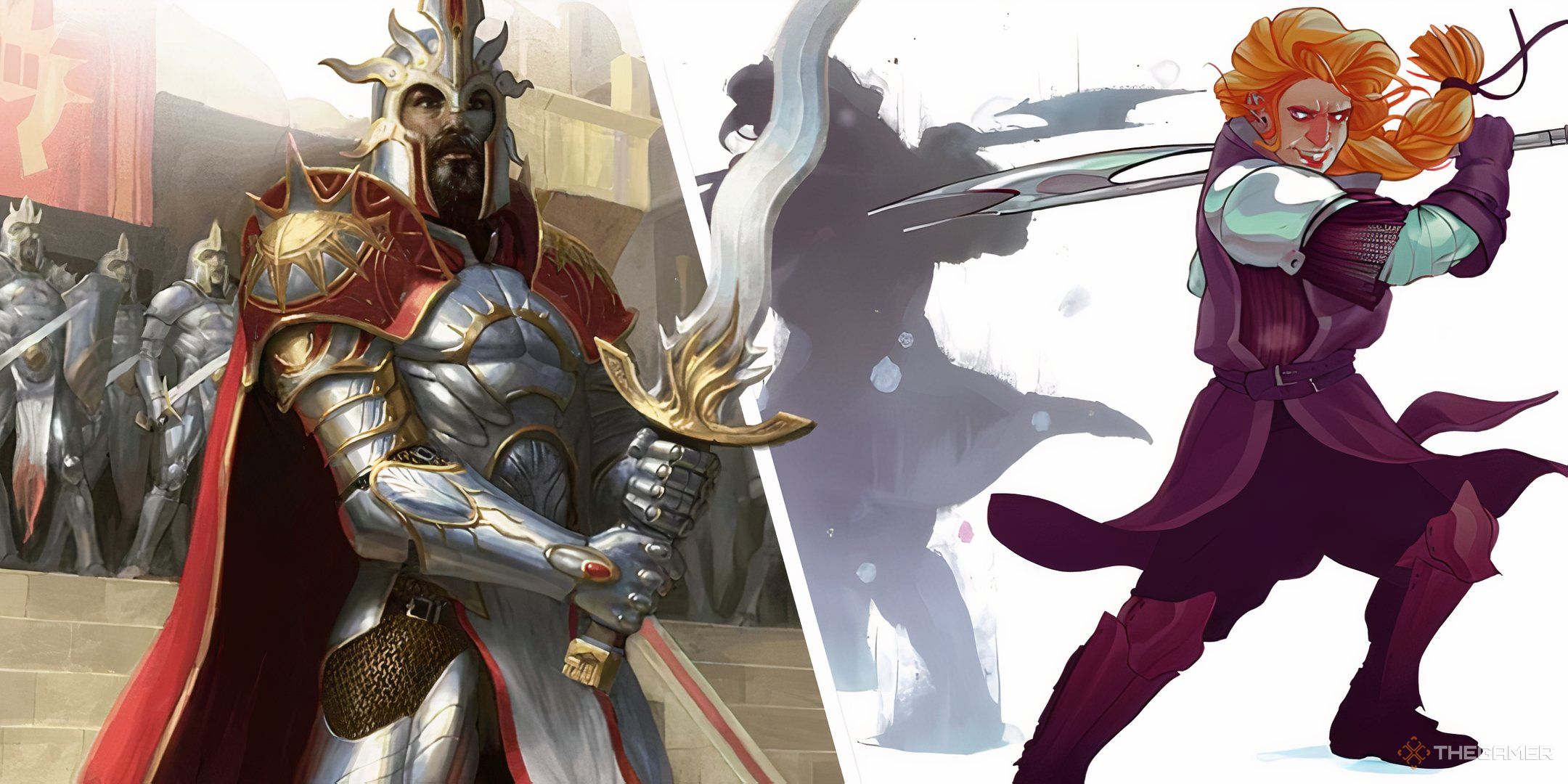
Next
Dungeons & Dragons: How To Build An Echo Knight Fighter
Learn how to build an Echo Knight in D&D, and summon yourself to fight alongside you.
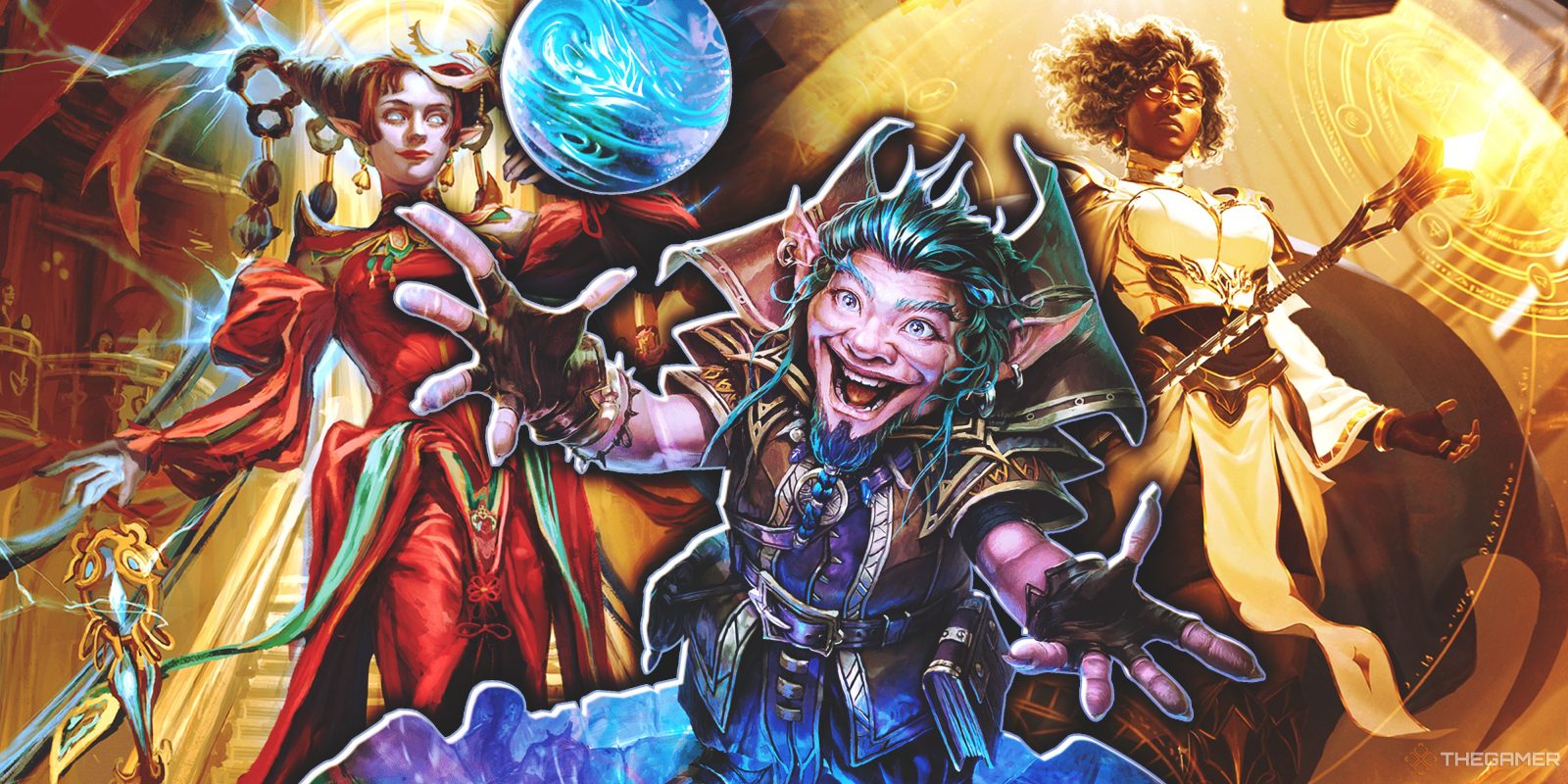
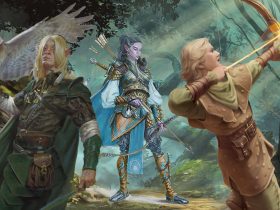
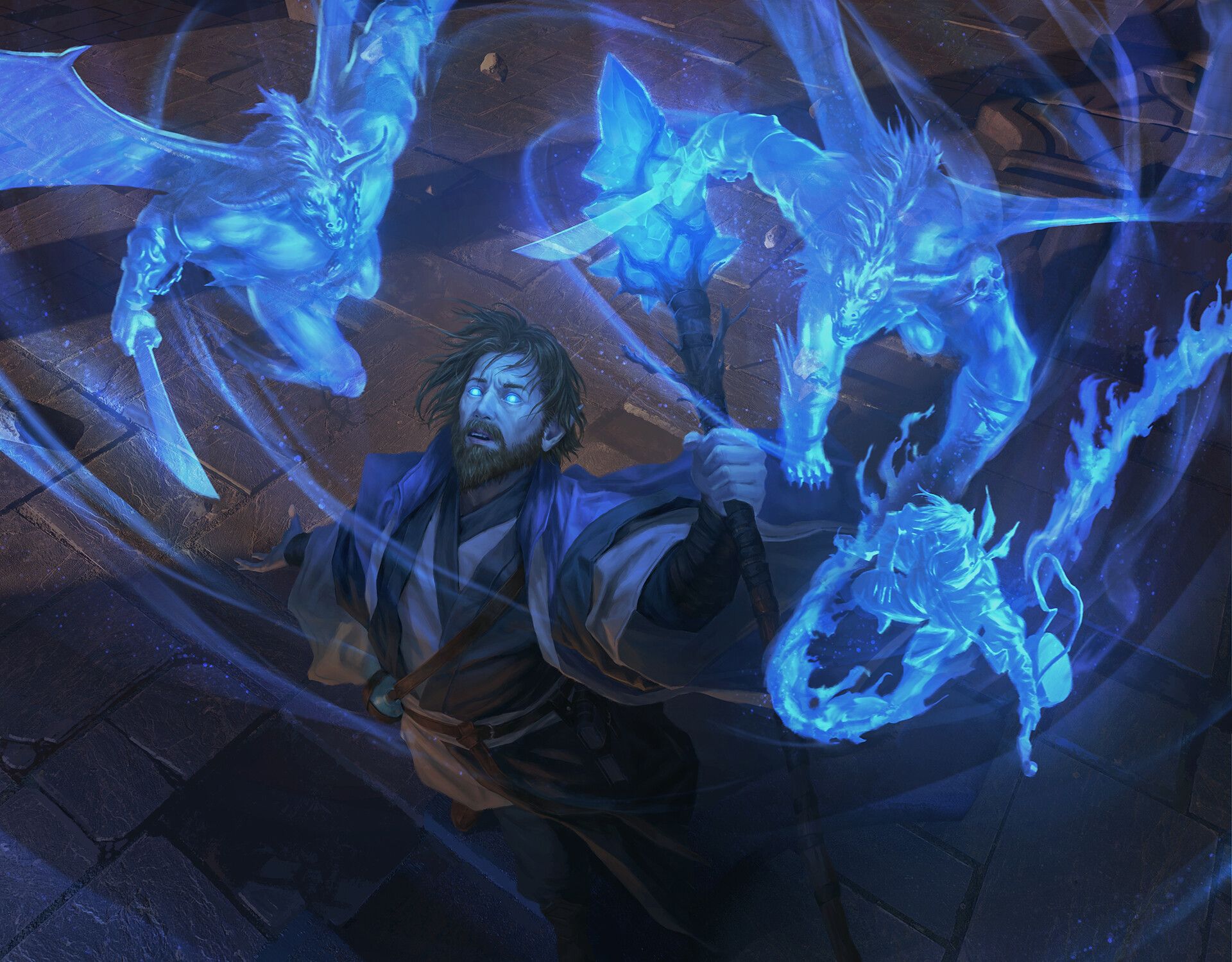

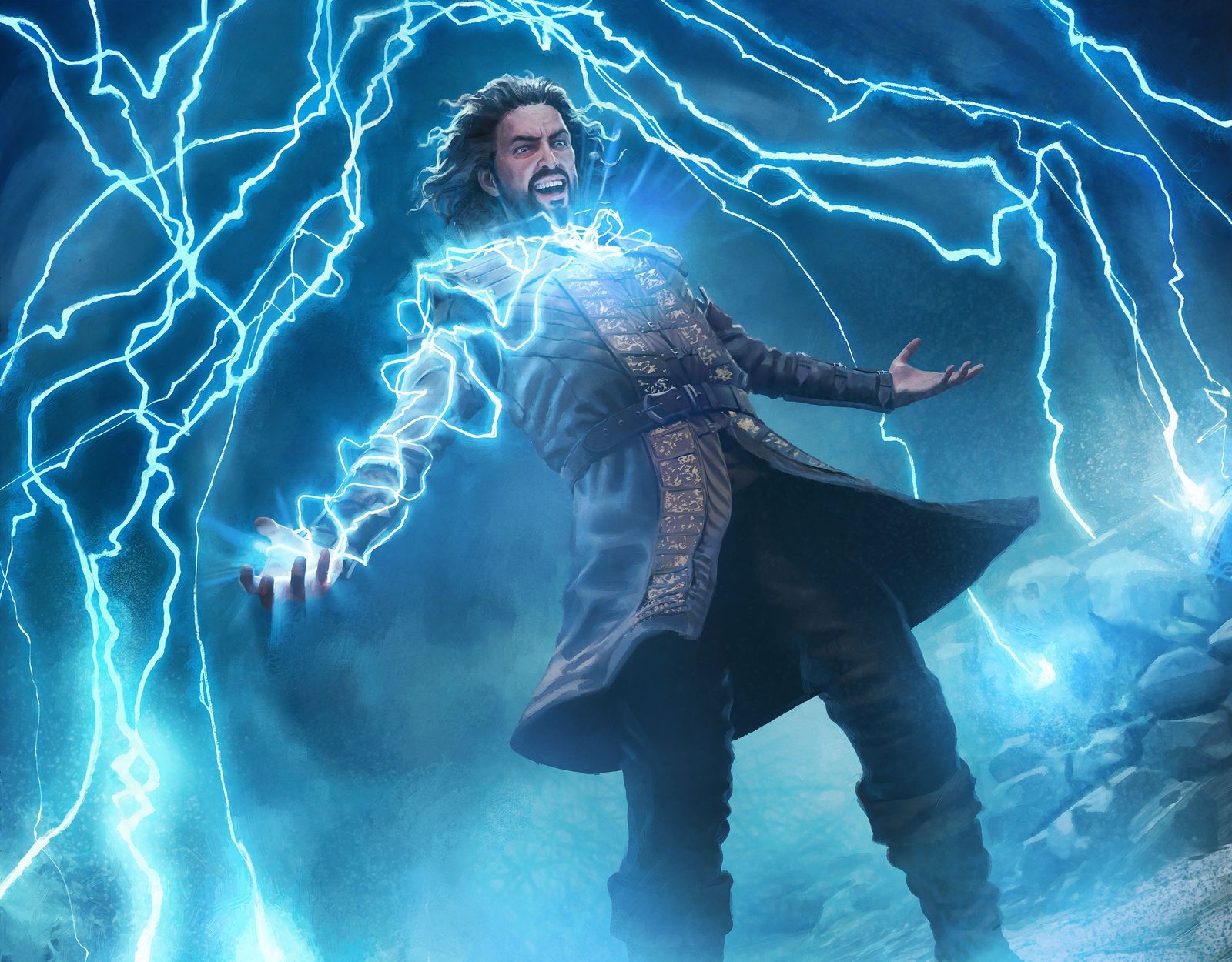
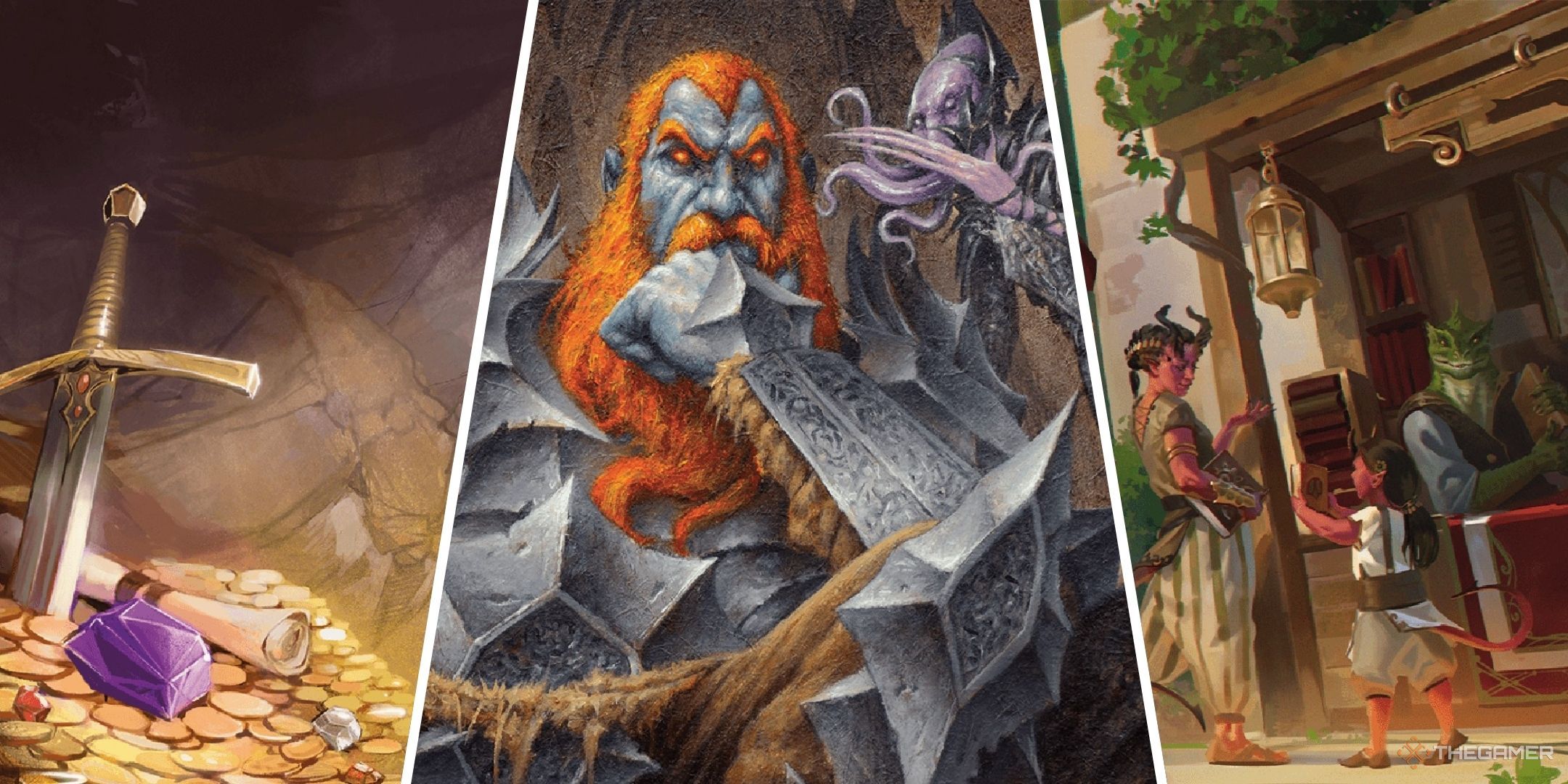
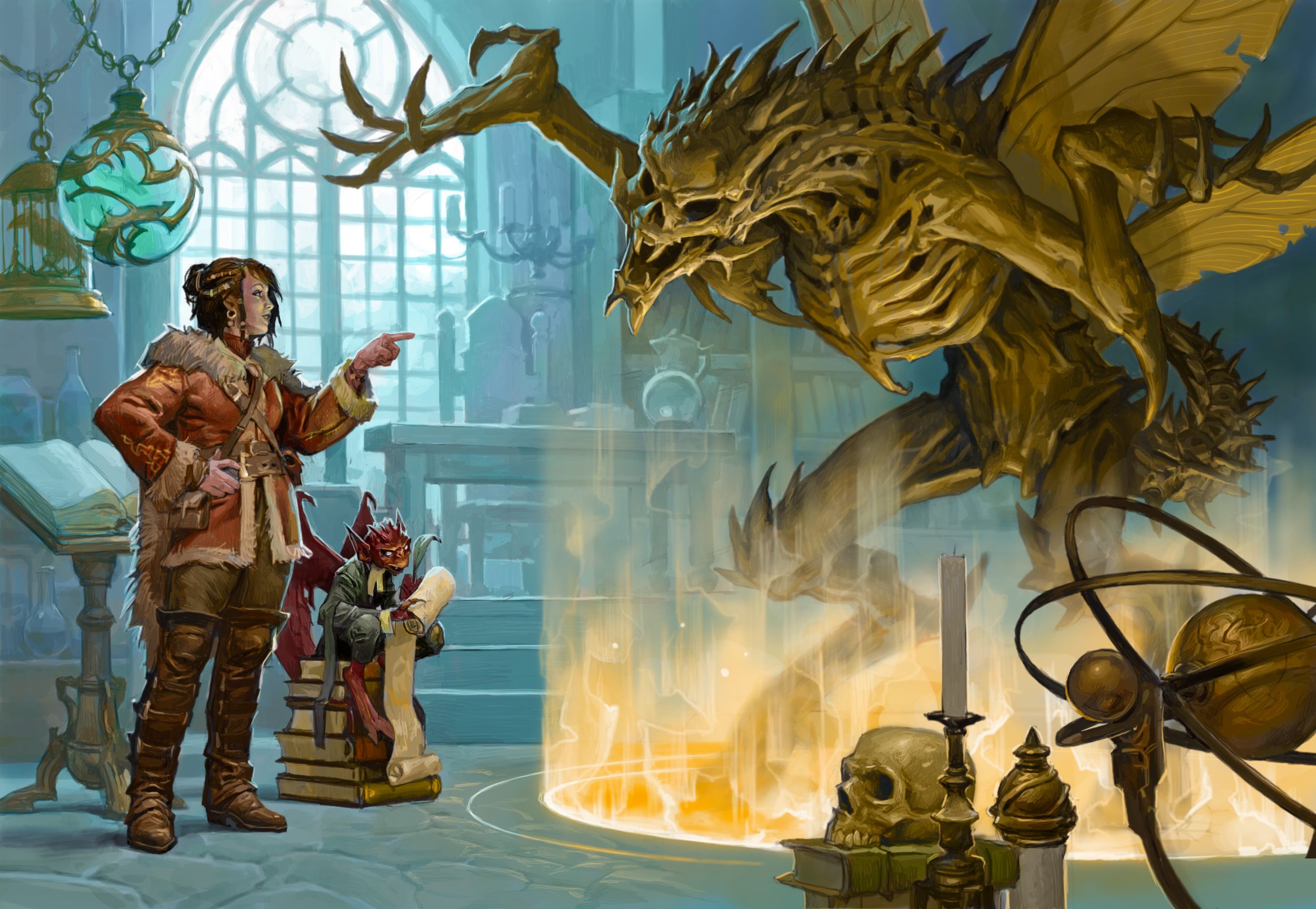
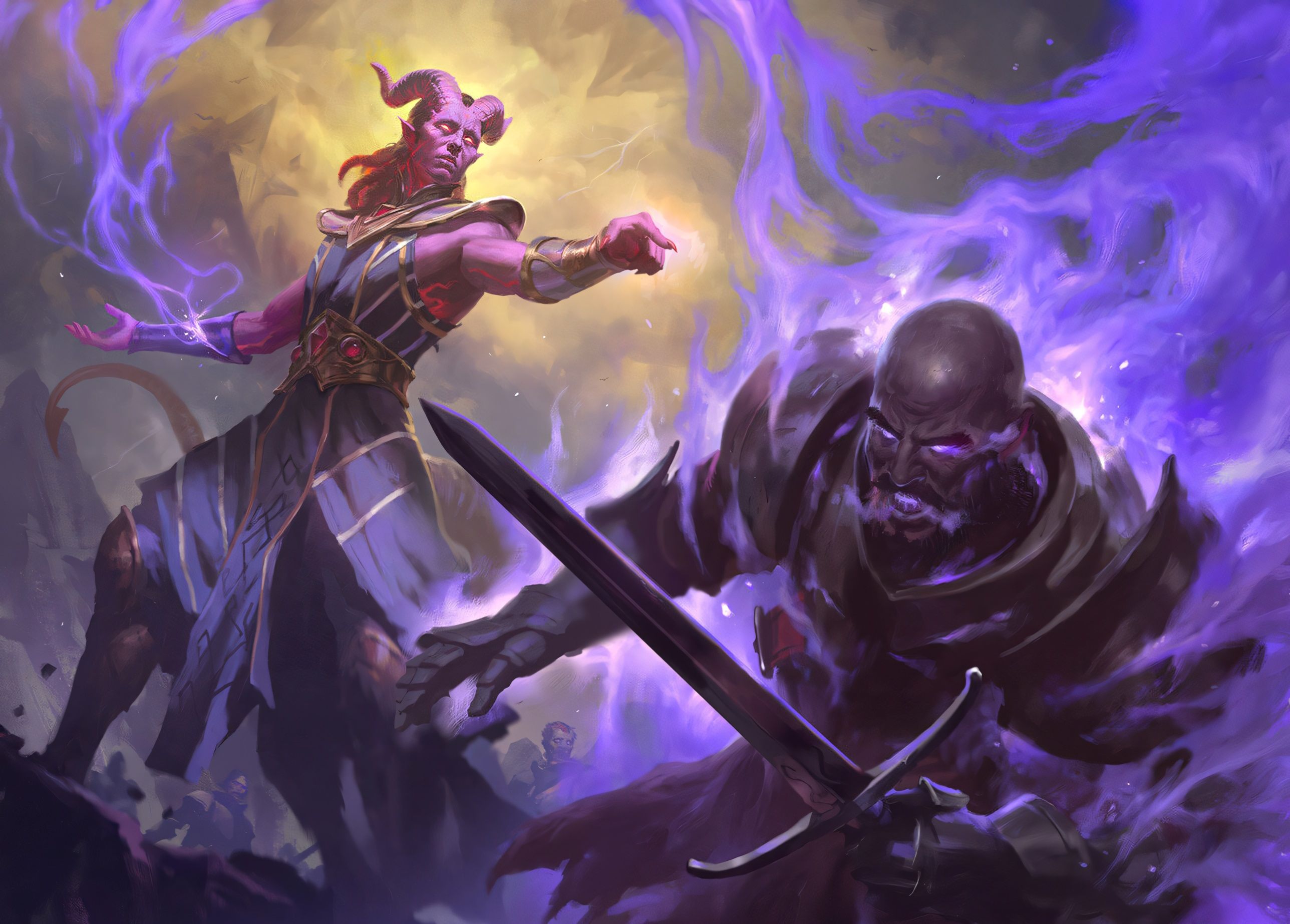
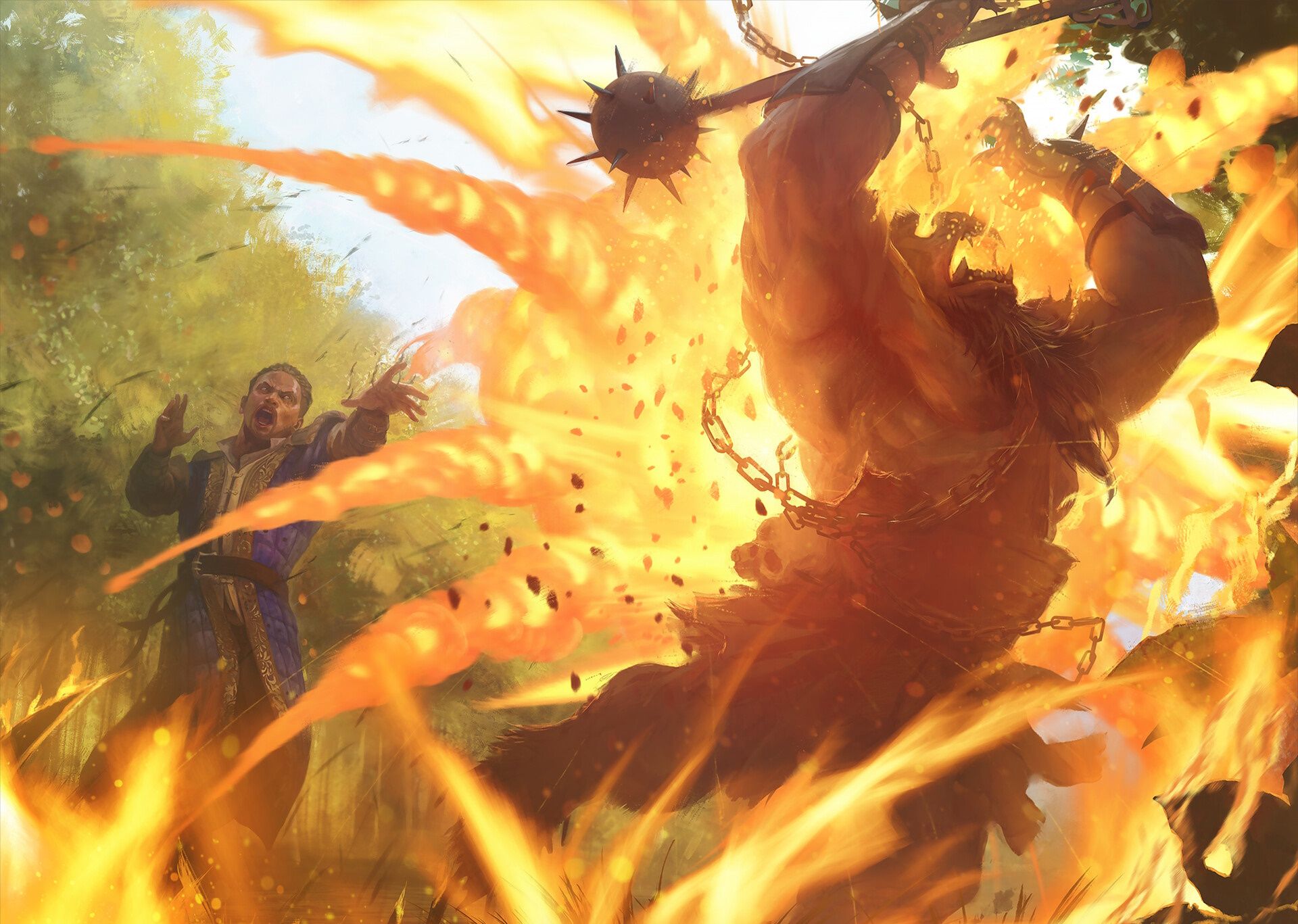
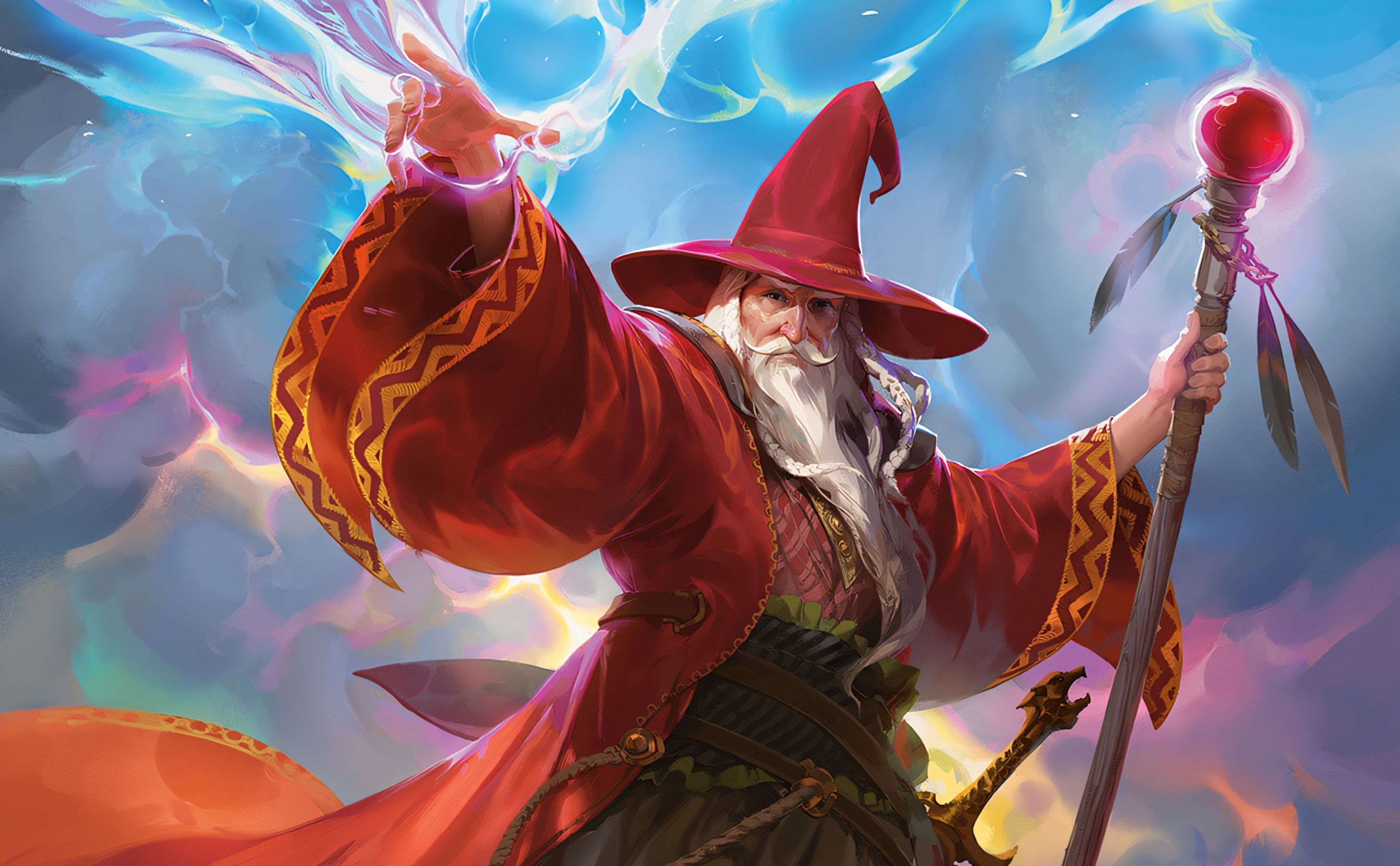




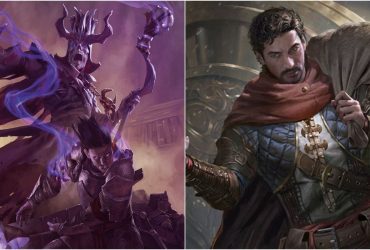
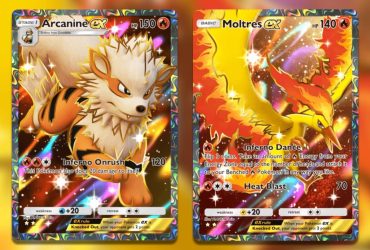
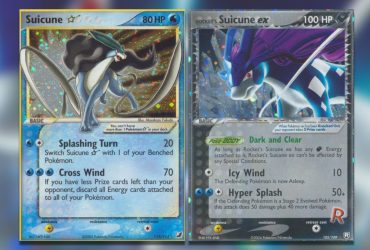
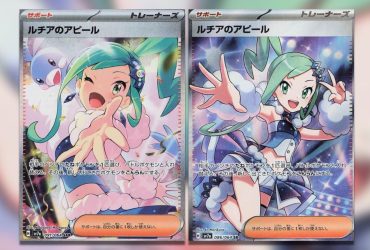
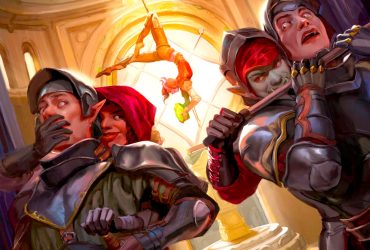
Leave a Reply